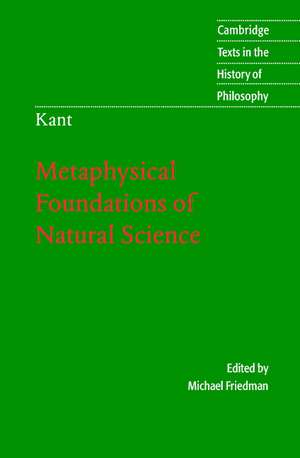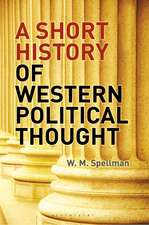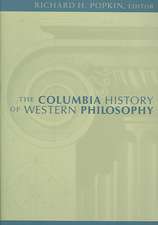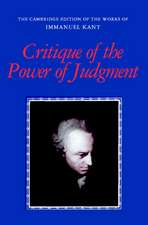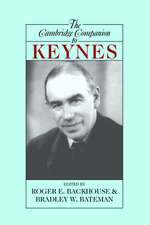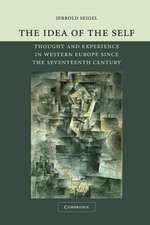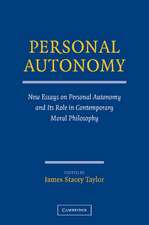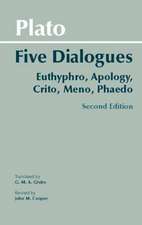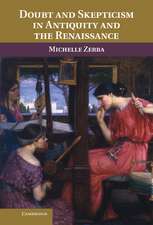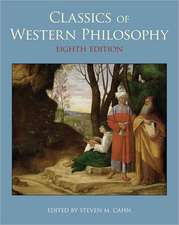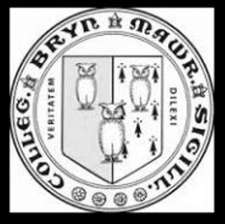Kant: Metaphysical Foundations of Natural Science: Cambridge Texts in the History of Philosophy
Autor Immanuel Kant Michael Friedmanen Limba Engleză Paperback – 15 sep 2004
| Toate formatele și edițiile | Preț | Express |
|---|---|---|
| Paperback (7) | 64.75 lei 6-8 săpt. | |
| Hackett Publishing Company – 15 oct 1995 | 113.47 lei 3-5 săpt. | |
| Cambridge University Press – 24 ian 1991 | 178.53 lei 3-5 săpt. | +19.18 lei 7-13 zile |
| Cambridge University Press – 21 feb 2018 | 200.18 lei 3-5 săpt. | +15.69 lei 7-13 zile |
| Cambridge University Press – 3 oct 2017 | 201.24 lei 3-5 săpt. | +19.52 lei 7-13 zile |
| Cambridge University Press – 30 sep 2015 | 328.11 lei 3-5 săpt. | |
| A & D Publishing – 15 feb 2008 | 64.75 lei 6-8 săpt. | |
| Cambridge University Press – 15 sep 2004 | 280.15 lei 6-8 săpt. | |
| Hardback (6) | 130.97 lei 6-8 săpt. | |
| Hackett Publishing Company – 15 oct 1995 | 294.69 lei 3-5 săpt. | |
| A & D Publishing – 3 apr 2018 | 130.97 lei 6-8 săpt. | |
| Cambridge University Press – 15 sep 2004 | 537.80 lei 6-8 săpt. | |
| Cambridge University Press – 21 feb 2018 | 538.02 lei 6-8 săpt. | |
| Cambridge University Press – 11 oct 2017 | 591.76 lei 6-8 săpt. | |
| Cambridge University Press – 3 oct 2012 | 1036.27 lei 6-8 săpt. |
Din seria Cambridge Texts in the History of Philosophy
-
 Preț: 273.03 lei
Preț: 273.03 lei -
 Preț: 163.93 lei
Preț: 163.93 lei - 11%
 Preț: 674.95 lei
Preț: 674.95 lei -
 Preț: 188.94 lei
Preț: 188.94 lei -
 Preț: 184.53 lei
Preț: 184.53 lei -
 Preț: 162.19 lei
Preț: 162.19 lei -
 Preț: 258.76 lei
Preț: 258.76 lei -
 Preț: 257.55 lei
Preț: 257.55 lei -
 Preț: 124.35 lei
Preț: 124.35 lei -
 Preț: 154.62 lei
Preț: 154.62 lei -
 Preț: 359.94 lei
Preț: 359.94 lei -
 Preț: 200.18 lei
Preț: 200.18 lei -
 Preț: 200.67 lei
Preț: 200.67 lei -
 Preț: 240.27 lei
Preț: 240.27 lei -
 Preț: 289.73 lei
Preț: 289.73 lei -
 Preț: 192.42 lei
Preț: 192.42 lei - 14%
 Preț: 764.18 lei
Preț: 764.18 lei -
 Preț: 245.94 lei
Preț: 245.94 lei - 14%
 Preț: 819.75 lei
Preț: 819.75 lei -
 Preț: 371.83 lei
Preț: 371.83 lei -
 Preț: 387.64 lei
Preț: 387.64 lei - 11%
 Preț: 572.21 lei
Preț: 572.21 lei -
 Preț: 439.33 lei
Preț: 439.33 lei -
 Preț: 319.32 lei
Preț: 319.32 lei - 14%
 Preț: 765.67 lei
Preț: 765.67 lei -
 Preț: 362.54 lei
Preț: 362.54 lei -
 Preț: 444.37 lei
Preț: 444.37 lei -
 Preț: 329.92 lei
Preț: 329.92 lei -
 Preț: 350.58 lei
Preț: 350.58 lei -
 Preț: 386.28 lei
Preț: 386.28 lei -
 Preț: 348.65 lei
Preț: 348.65 lei -
 Preț: 283.63 lei
Preț: 283.63 lei -
 Preț: 451.88 lei
Preț: 451.88 lei -
 Preț: 193.86 lei
Preț: 193.86 lei - 14%
 Preț: 673.55 lei
Preț: 673.55 lei -
 Preț: 361.19 lei
Preț: 361.19 lei
Preț: 280.15 lei
Nou
Puncte Express: 420
Preț estimativ în valută:
53.61€ • 55.86$ • 44.39£
53.61€ • 55.86$ • 44.39£
Carte tipărită la comandă
Livrare economică 03-17 aprilie
Preluare comenzi: 021 569.72.76
Specificații
ISBN-13: 9780521544757
ISBN-10: 0521544750
Pagini: 160
Ilustrații: 5 figures
Dimensiuni: 153 x 228 x 10 mm
Greutate: 0.27 kg
Ediția:New.
Editura: Cambridge University Press
Colecția Cambridge University Press
Seria Cambridge Texts in the History of Philosophy
Locul publicării:Cambridge, United Kingdom
ISBN-10: 0521544750
Pagini: 160
Ilustrații: 5 figures
Dimensiuni: 153 x 228 x 10 mm
Greutate: 0.27 kg
Ediția:New.
Editura: Cambridge University Press
Colecția Cambridge University Press
Seria Cambridge Texts in the History of Philosophy
Locul publicării:Cambridge, United Kingdom
Cuprins
Preface; 1. Metaphysical foundations of phoronomy; 2. Metaphysical foundations of dynamics; 3. Metaphysical foundations of mechanics; 4. Metaphysical foundations of phenomenology.
Recenzii
'Friedman's translation and edition of Kant's Metaphysical Foundations of Natural Science is really excellent. No doubt, it will replace earlier translations and become the English standard edition of this text.' History and Philosophy of Life Sciences
Descriere
A translation of Kant's mature reflections on issues in the philosophy of natural science.
Notă biografică
Immanuel Kant ( 22 April 1724 - 12 February 1804) was an influential German philosopher[23] in the Age of Enlightenment. In his doctrine of transcendental idealism, he argued that space, time, and causation are mere sensibilities; "things-in-themselves" exist, but their nature is unknowable.[24][25] In his view, the mind shapes and structures experience, with all human experience sharing certain structural features. In one of his major works, the Critique of Pure Reason (1781; second edition 1787),[26] he drew a parallel to the Copernican revolution in his proposition that worldly objects can be intuited a priori ('beforehand'), and that intuition is therefore independent from objective reality.[b]
Kant believed that reason is also the source of morality, and that aesthetics arise from a faculty of disinterested judgment. Kant's views continue to have a major influence on contemporary philosophy, especially the fields of epistemology, ethics, political theory, and post-modern aesthetics. He attempted to explain the relationship between reason and human experience and to move beyond the failures of traditional philosophy and metaphysics. He wanted to put an end to what he saw as an era of futile and speculative theories of human experience, while resisting the skepticism of thinkers such as David Hume. He regarded himself as showing the way past the impasse between rationalists and empiricists,[28] and is widely held to have synthesized both traditions in his thought.[29]
Kant was an exponent of the idea that perpetual peace could be secured through universal democracy and international cooperation. He believed that this would be the eventual outcome of universal history, although it is not rationally planned.[30] The nature of Kant's religious ideas continues to be the subject of philosophical dispute, with viewpoints ranging from the impression that he was an initial advocate of atheism who at some point developed an ontological argument for God, to more critical treatments epitomized by Schopenhauer, who criticized the imperative form of Kantian ethics as "theological morals" and the "Mosaic Decalogue in disguise",[31] and Nietzsche, who claimed that Kant had "theologian blood"[32] and was merely a sophisticated apologist for traditional Christian faith
